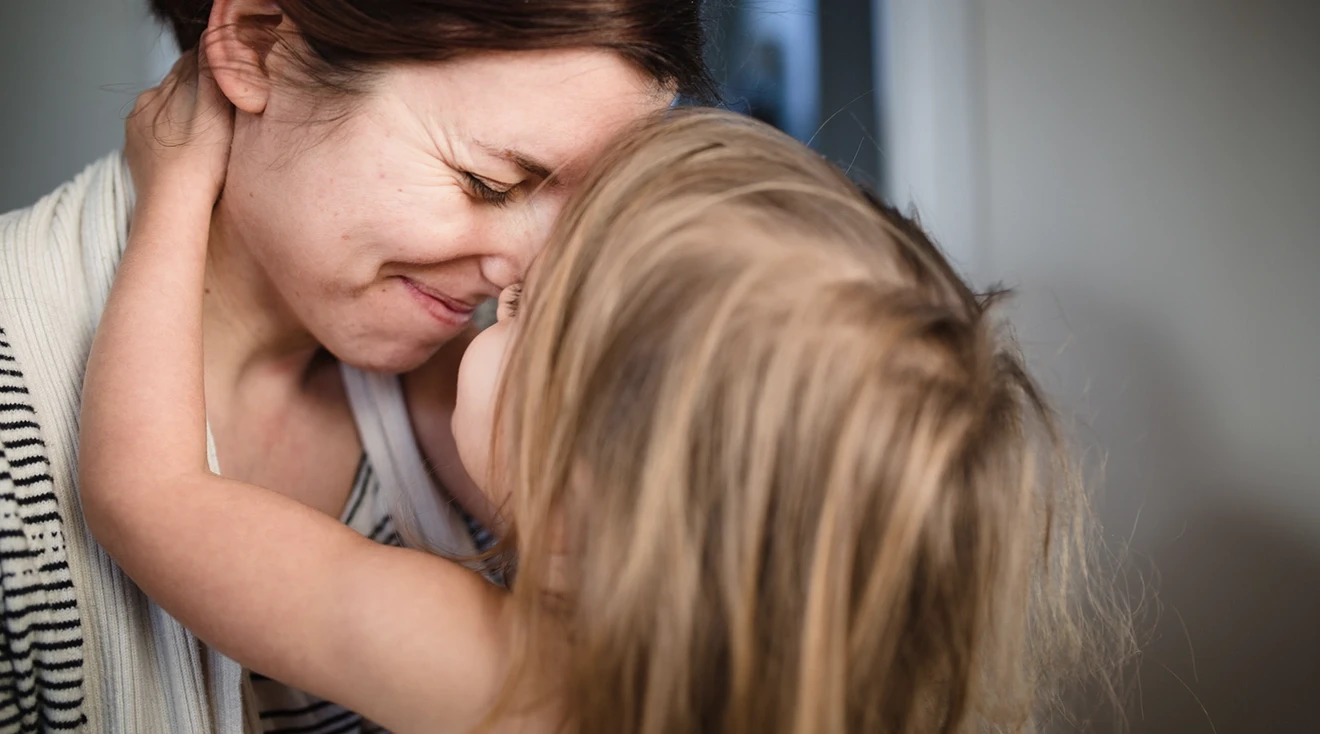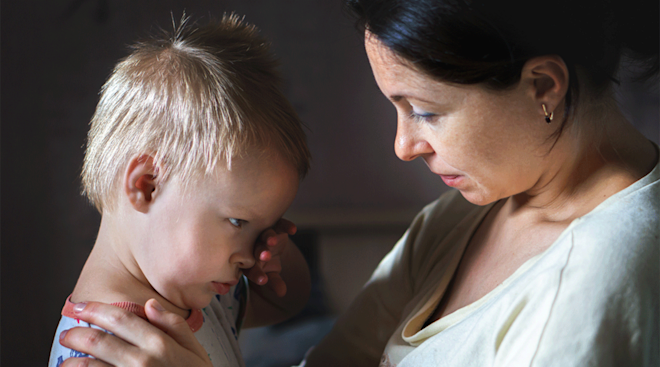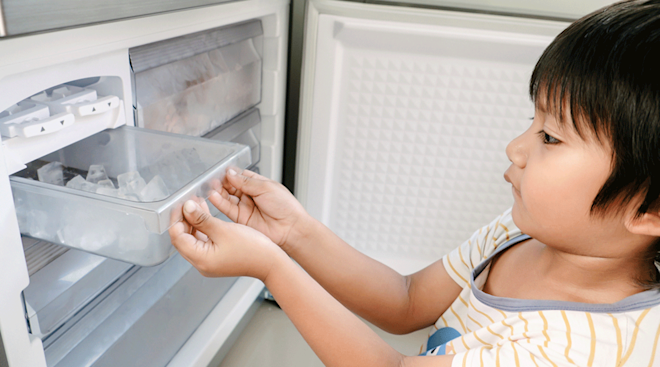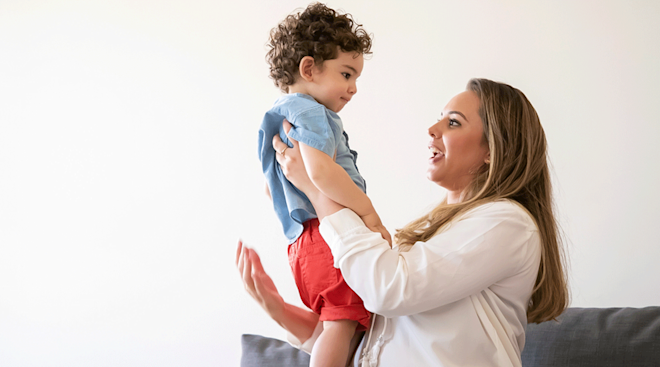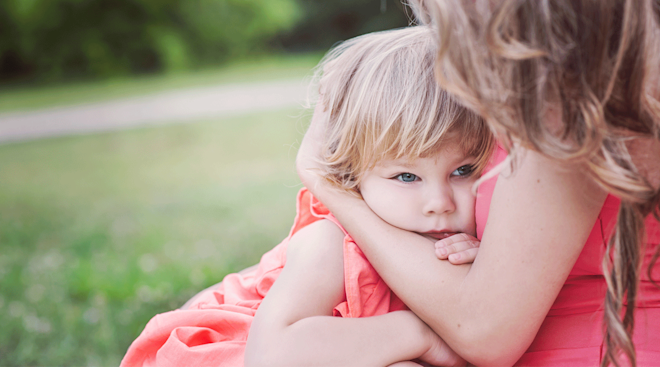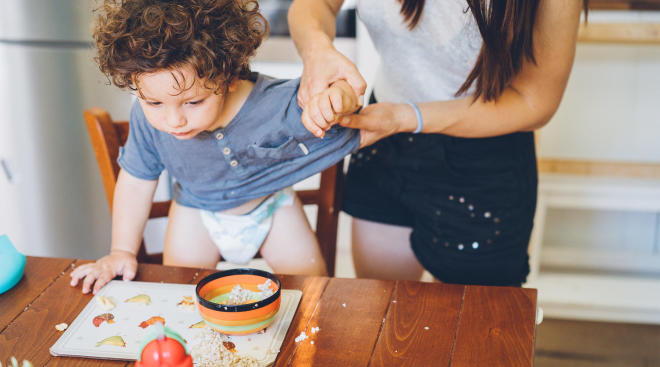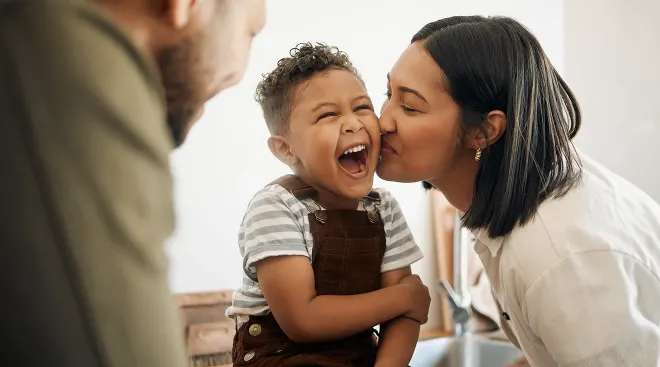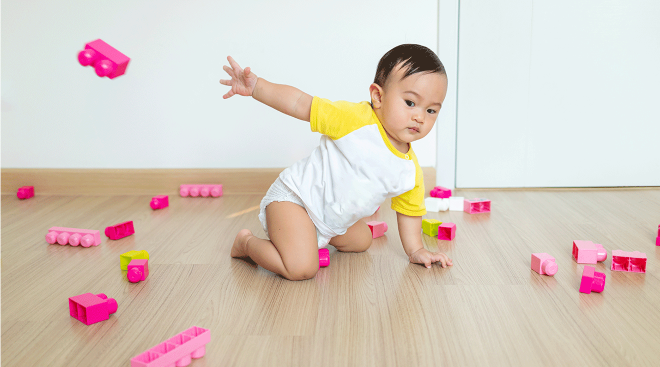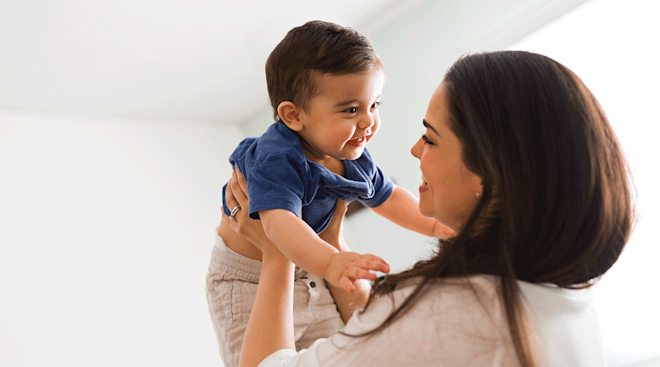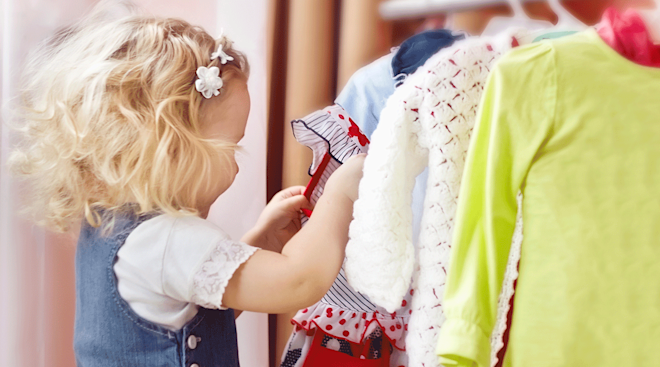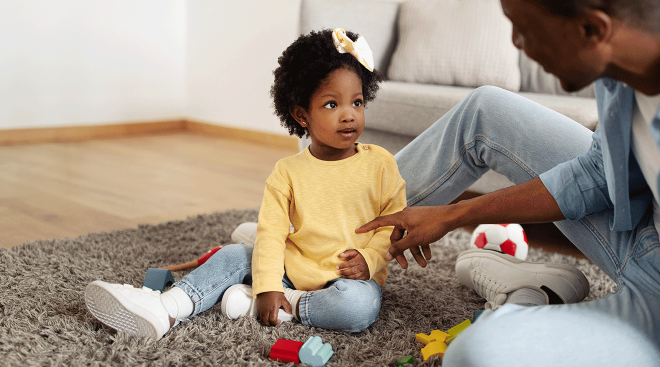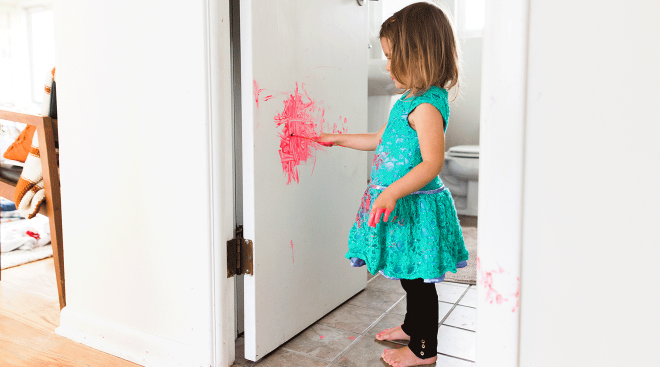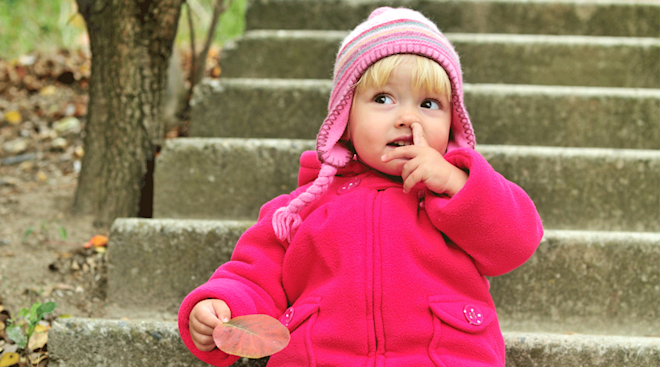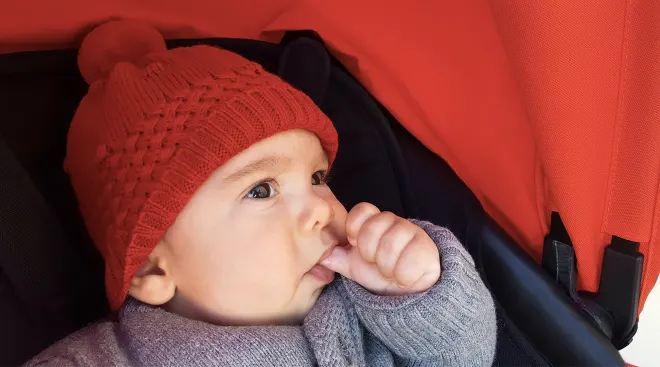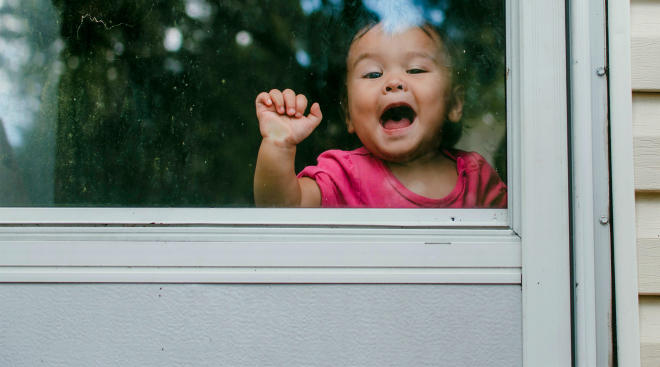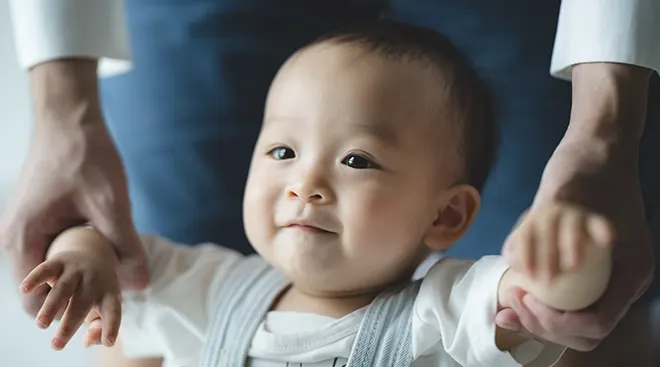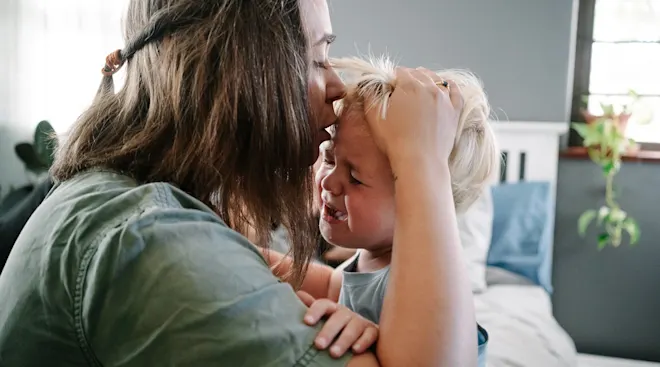10 Ways Toddlers Say ‘I Love You’—Without Actually Saying ‘I Love You’
Toddlers are a funny breed. One second they’re crawling in your lap purring like a kitty cat, the next they’re smacking you in the face. Love can be confusing (and painful). And while your little one might not yet be verbally professing their affection, they’re certainly showing it—and likely in some interesting ways. “Toddlers’ primary sources of information include what they can see, touch and taste. It follows that they demonstrate their feelings through the same avenues, especially when speech development is in its early stages,” explains Suzanne Barchers, EdD, an education advisor with Lingokids. So the next time your tot decides to lick your cheek or wipe a booger on your arm, feel good knowing it’s their little way of saying “I love you.”
Here, we share a few more silly, sweet and serious ways toddlers express their absolute adoration.
From the moment your little one was born, you’ve been kissing and snuggling and prioritizing physical affection. And while this skin-on-skin action has certainly strengthened your bond, it’s also helped your child feel safe, secure and confident. It’s widely known that cuddling and hugging trigger the release of the stress-reducing love hormone, oxytocin—so that impromptu snuggle sesh is actually doing you both some good. When that rambunctious cutie of yours takes an unexpected pause from general mayhem and destruction to give you a random squeeze, soak it in. They need it—and you probably do too.
“Sharing is a difficult concept for toddlers, so if they’re willing to share their toys, comfort items or favorite foods, it indicates true love,” says Madeleine Vieira, PhD, a clinical child psychologist. Of course, it’s one thing when your kiddo hands you their favorite lovey (they trust you to hold that priceless rag!), but it’s quite another when they’re insistent on shoving sucked-on Cheerios into your mouth. Take a beat before you reject their slobbery seconds. A study found that babies and toddlers associate saliva-sharing with close relationships. In other words, their willingness to give you something from their mouth (and take something from yours!) means they truly adore you. Bon appetit!
Does your kiddo twist your hair around their finger when you cuddle, or insist on giving you a fancy new do during playtime? Their budding stylist skills may indicate more than a flair for hair—it could be a sign of affection. “When a toddler grabs Mommy’s hair as they ride in the back carrier or snuggles on her shoulder, they’re saying they want to hold on and maintain that connection,” says Barchers. What’s more, she adds that it’s not uncommon for a toddler to put a strand of their mom’s hair in their mouth. “It’s another way of connecting through the primal mode of taste.”
You may be going out of your mind with the repetitiveness of playtime. Another round of hide-and-seek, really?! But for your toddler, participating in these small games on repeat reinforces your love connection, says Barchers. “The glee in playing peek-a-boo repeatedly demonstrates how eye contact and repetition cement the child-adult relationship… They’re showing they want the connection to persist. And their eager participation demonstrates their reciprocal devotion.” You may be tired of the activity, but your toddler rarely gets bored with your undivided attention and one-on-one interaction.
Does your toddler try to rock your high heels? Do they grab a purse and keys to run errands? Do they put on a faux mustache to look like Daddy or ask for chocolate milk in a to-go coffee up? “Imitation is the sincerest form of flattery and one way toddlers show love and affection,” says Vieira.
Is your child a beacon of sweetness at daycare but a sass monster at home? If you giggle to yourself when babysitters, teachers and grownups claim that your cutie is a model of behavior, give yourself a pat on the back. You’re doing something right! “Any toddler who turns to a trusted adult when tired, frustrated or hungry is showing that they love the person who’s there for them—even if, during that anger or frustration, the toddler is not very lovable,” says Barchers. In other words: Your child isn’t afraid to be their true self when they’re with you, because they know you love them, flaws and all.
What’s more, if your toddler tantrums more frequently in your presence, it’s partially because they feel most comfortable with you, but also likely a sign they’re craving your undivided attention, says Vieira. They love you so much, they don’t want to share you!
You tell your little one that you love every part of them—and that includes their snot and boogies, so why wouldn’t they share the wealth? “Toddlers don’t see anything wrong with it as they don’t yet have the maturity and developmental understanding of what’s socially acceptable and what’s not,” says Vieira. “They don’t know that something will come across as gross to you; they just want to share what’s interesting with you.” So the next time your kiddo gives you some nostril gold—or proudly shows you their giant poop—gush out a “thank you,” and then beeline it to the bathroom to wash your hands.
You’re desperate for 60 seconds of peace, quiet and solitude, but you’re not going to get that in the bathroom—at least, not with your mini-me shadow close behind. “They aren’t being obnoxious as they follow us around. They simply can’t bear to be separated from us,” says Barchers. Again, social acceptability isn’t something your toddler considers or remotely cares about—and privacy is another concept they’ve yet to grasp.
“Didja poop, Mom?” Has your child enthusiastically asked you some variation of this very personal question? No doubt, toddlers think potty talk is hilarious, but they also really do want to know that your body feels good, and that you’re happy, healthy and— you guessed it—regular. “That curiosity about body functions is real, but the question is also a way of showing care, much like the common question, ‘How did you sleep last night?’” says Barchers. Yes, “poop or pee?” is pretty much on par with “I love you, Mom.”
Does your child beam with pride as they show you chicken scratch on a slab of construction paper? Do they look to you for approval when they build a block tower or choose a bedtime book? “Toddlers show social-emotional reciprocity by sharing their ideas and waiting for your response because they value your opinion,” says Vieira.
Similarly, they may turn back for a nod of reassurance from you when they mount a new slide at the playground or check your face for a reaction as they walk into their designated classroom on the first day of school. They look to you because you’re their whole world. You’re their safety person, their home base and the fuel that ignites their confidence. They love you—even if they show it in some unexpected ways.
About the experts:
Suzanne Barchers, EdD, is an education advisor with Lingokids. She earned her doctorate in education from the University of Colorado Boulder.
Madeleine Vieira, PhD, is a clinical child psychologist and the author of the I’m Afraid Anxiety Disorder Series.
Plus, more from The Bump:
Navigate forward to interact with the calendar and select a date. Press the question mark key to get the keyboard shortcuts for changing dates.

































